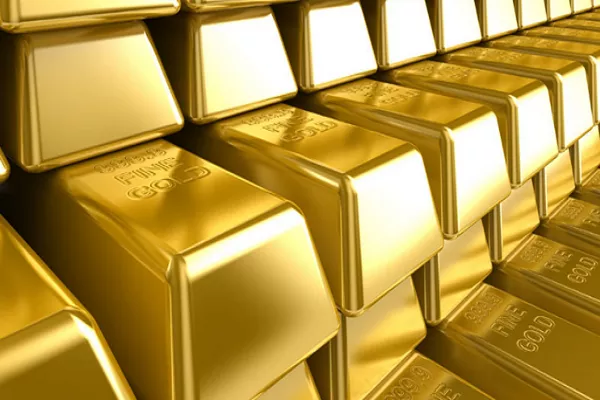Gold Prices Find Stability After Recent Losses, Eyes on U.S. Monetary Policy
In a bid to regain steadiness following a series of notable declines over the past four weeks, gold prices witnessed a slight uptick on Monday. This cautious movement came as markets worldwide remained on alert for further insights into U.S. monetary policy. Meanwhile, copper prices remained unchanged, with a Chinese interest rate cut falling short of expectations.
This week, the focus in financial circles is firmly directed towards the upcoming Jackson Hole Symposium scheduled for Thursday and Friday. Within this highly anticipated event, Federal Reserve Chair Jerome Powell is anticipated to provide crucial cues regarding the future trajectory of U.S. interest rates.
Amidst the recent turbulence, gold prices took a step back from the precipice, having dropped below the significant $1,900 per ounce threshold. A glimmer of safe haven demand emerged, attributed in part to concerns over decelerating growth in China, which exerted downward pressure on market sentiment. The People’s Bank of China’s announcement regarding changes to its loan prime rate (LPR) on Monday, however, deviated from market expectations.
As of 00:16 ET (04:16 GMT), spot gold displayed a marginal rise of 0.2%, reaching $1,892.68 per ounce. Simultaneously, gold futures set to expire in December indicated a 0.3% increase, reaching $1,921.95 per ounce. Despite these gains, both benchmarks still lingered near a five-month low.
The Jackson Hole Symposium is poised to take center stage, exerting a considerable influence on gold’s near-term trading trajectory. The precious metal is anticipated to maintain its current rangebound behavior as investors brace themselves for the symposium’s deliberations later this week.
Gold’s recent performance had been greatly impacted by robust U.S. inflation and labor market indicators. These economic signals culminated in substantial declines as the market began factoring in an augmented probability of higher interest rates. Chair Powell’s imminent appearance is expected to cast additional light on the Federal Reserve’s stance on interest rates. The minutes from the Fed‘s July meeting revealed that a majority of policymakers endorsed the notion of elevated rates to counter persistent inflationary pressures.
Expectations of heightened rates prompted the ascent of the U.S. dollar and treasury yields, effectively eroding the appeal of gold and other non-yielding assets. The burgeoning opportunity cost of holding gold throughout the past year has resulted in many traders gravitating toward the dollar as their preferred safe haven.
In this dynamic environment, the upcoming Jackson Hole Symposium holds the potential to reconfigure the narrative surrounding precious metals and central bank policy, making it a focal point for investors worldwide.


